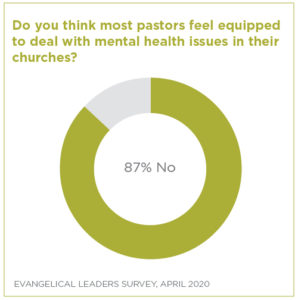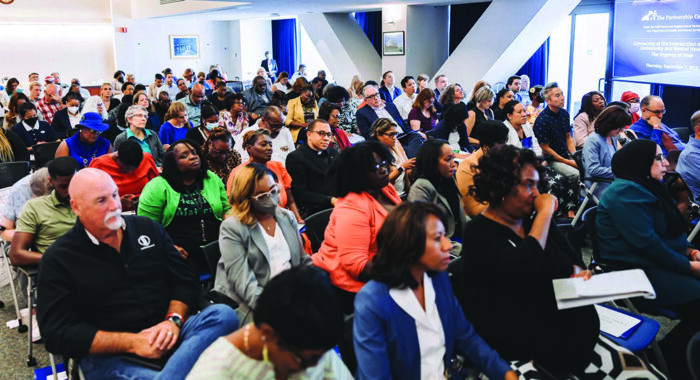
Due to COVID-19, many Americans have experienced job loss, food insecurity, deaths of loved ones, prolonged isolation and other scenarios that can be described as traumatic events. In this context, 87 percent of evangelical leaders do not think pastors feel equipped to deal with mental health issues in their churches, according to the April Evangelical Leaders Survey.
 “Pastors cannot be expected to have the same level of skill, training and experience as professional therapists,” said Walter Kim, president of the National Association of Evangelicals (NAE). “Pastors have a shepherding and counseling role to play, but should refer when people need the next layer of care. Pastors should also play a role in minimizing stigma around seeing therapists.”
“Pastors cannot be expected to have the same level of skill, training and experience as professional therapists,” said Walter Kim, president of the National Association of Evangelicals (NAE). “Pastors have a shepherding and counseling role to play, but should refer when people need the next layer of care. Pastors should also play a role in minimizing stigma around seeing therapists.”
Several evangelical leaders noted that a key challenge for pastors is discerning when they have both the skill and the necessary time to help, and when they should refer. Most leaders indicated that pastors deal well with mental health issues when they refer to trusted counselors. However, leaders noted that in some areas the referral network is thin, expensive or both.
Kimberly Reisman, executive director of World Methodist Evangelism, said, “Our world is more complex than ever and the vast array of mental illness can be overwhelming. I believe pastors need much more support in dealing with these issues and need to have a strong network of professionals that they can lean on as they minister to the needs in their congregations.”
Steve Moore, president of nexleader, added, “Pastors I know are looking for professionals they can trust in their church or community who offer mental health services from a biblical point-of-view at a reasonable price point. That can be difficult to find in some communities. Perhaps we need an infusion of mental telehealth services.”
Pastoral counsel and professional therapy should complement each other. Don Sweeting, president of Colorado Christian University, said, “Mental health issues have not been traditionally taught at seminary, which is not to say it is completely overlooked. Mental and spiritual health overlap, but it is complex. Mental health is not simply a spiritual issue. Nor can mental health be completely separated from spiritual issues.”
The Evangelical Leaders Survey is a monthly poll of the Board of Directors of the National Association of Evangelicals. They include the CEOs of denominations and representatives of a broad array of evangelical organizations including missions, universities, publishers and churches.



 View All Surveys
View All Surveys 











